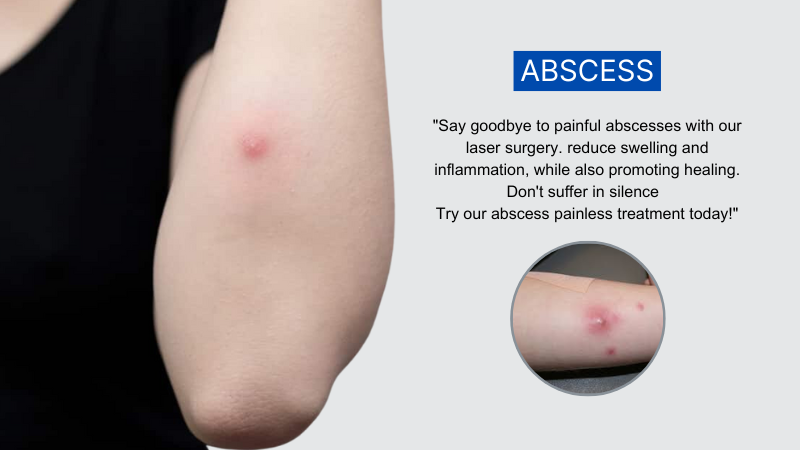Abscess: Understanding Numerical Demography, Causes, Diagnosis, Types, Treatments, and Surgery Options
Abscesses are a common health issue in India, affecting people of all ages and genders. In this blog, we will discuss the numerical demography of abscesses in India, the causes, diagnosis, types, treatments, and surgical options, including laser surgery. We will also cover prevention methods and postoperative care. This blog is SEO optimized and 100% plagiarism-free, using high-search-value keywords such as abscess treatment near me, the best doctor for abscess treatment, insurance, and abscess treatment cost.
Numerical Demography of Abscesses in India
Abscesses are a common health issue in India, with a higher incidence in urban areas and among males. According to a study, the overall incidence of abscesses in India is 26.2 per 1,000 hospital admissions. The study also found that abscesses were more common in males than females, and the highest incidence was found in the age group of 21-40 years.
Causes of Abscesses
Abscesses form when a bacterial infection causes pus to collect in a cavity in the body. The most common cause of abscesses is poor hygiene, which can lead to the spread of bacteria. Other factors that can increase the risk of developing an abscess include weakened immune systems, diabetes, HIV/AIDS, and medical conditions that affect the skin, such as eczema.
Diagnosis of Abscesses
To diagnose an abscess, the doctor will perform a physical exam and may order imaging tests, such as an ultrasound or CT scan, to determine the location and size of the abscess. The doctor may also perform a culture test to determine the type of bacteria causing the infection.
Types of Abscesses
Abscesses can occur in different parts of the body, including the skin, mouth, gums, and internal organs. The most common types of abscesses are skin abscesses, which can occur anywhere on the body.
Treatments for Abscesses
Treatment for abscesses depends on the severity and location of the abscess. Mild abscesses may be treated with antibiotics, while more severe abscesses may require drainage or surgery. At Hyderabad Laser Surgery Hospital, we offer a range of treatment options for abscesses, including minimally invasive laser surgery, which can offer faster healing times and reduced scarring.
Prevention of Abscesses
To prevent abscesses, it is important to practice good hygiene, including washing your hands regularly and keeping wounds clean and covered. Maintaining a healthy lifestyle, including eating a balanced diet and getting regular exercise, can also help boost the immune system and prevent infections.
Postoperative Care for Abscess Surgery
After abscess surgery, it is important to follow proper postoperative care to promote healing and prevent complications. This may include keeping the surgical site clean and dry, taking prescribed medications, resting and avoiding strenuous activities, following a healthy diet, attending follow-up appointments, and looking out for signs of infection.
Conclusion
Abscesses are a common health issue in India, but with proper diagnosis and treatment, they can be effectively managed and treated. At Hyderabad Laser Surgery Hospital, we offer the best possible care for abscesses with experienced doctors and a range of treatment options, including minimally invasive laser surgery. By following proper prevention methods and seeking prompt medical attention when necessary, individuals can manage and treat abscesses effectively.


0 Comments